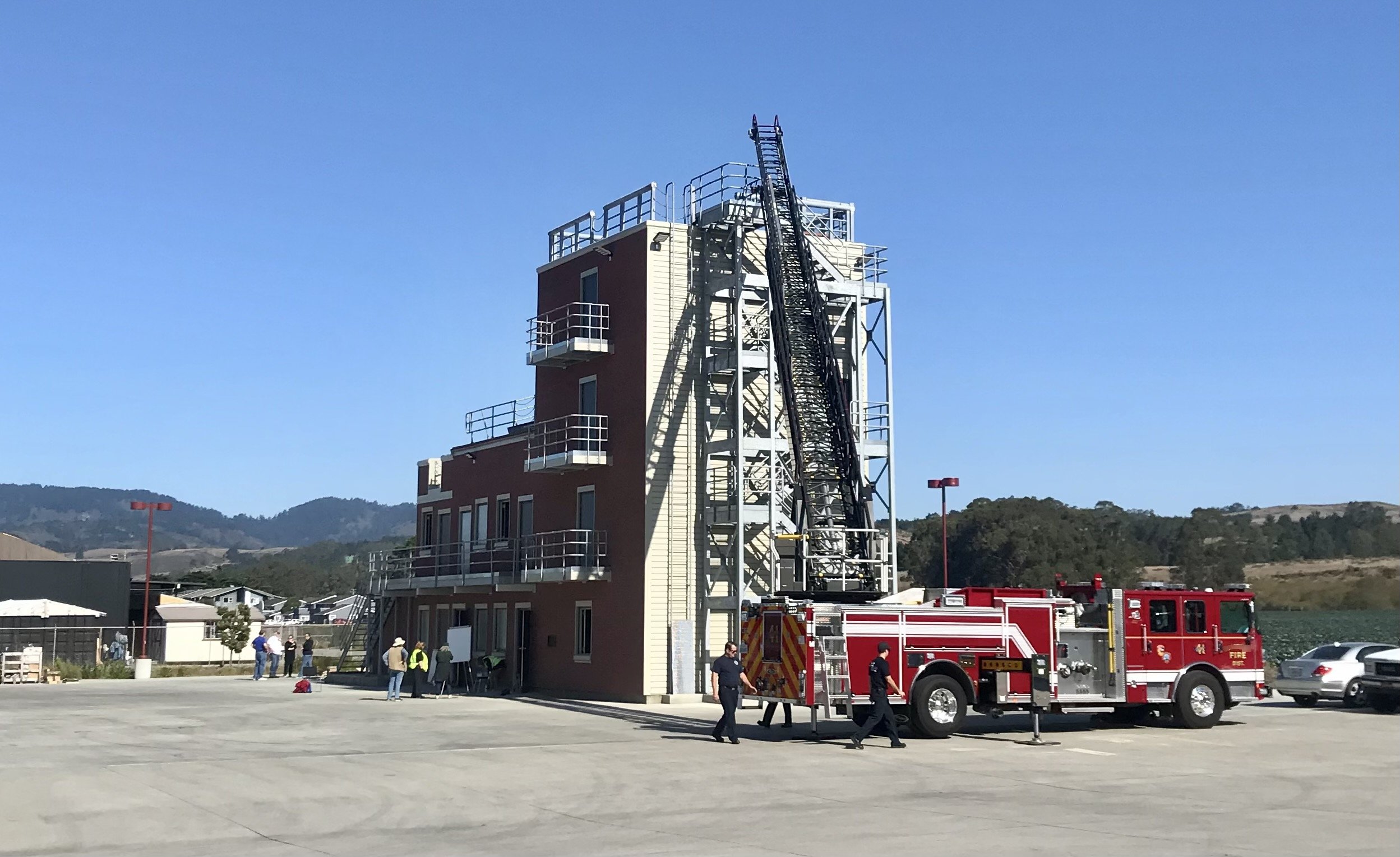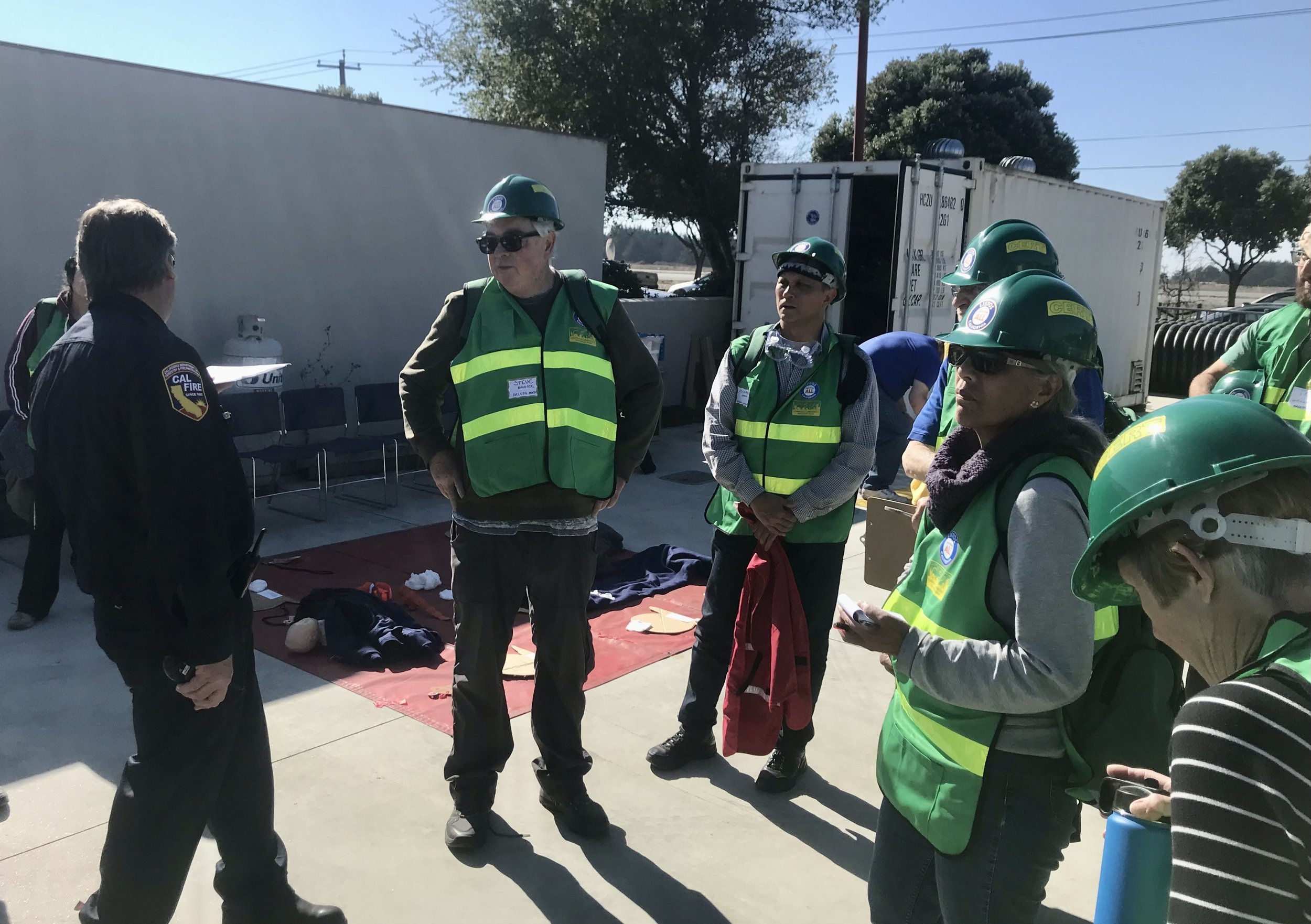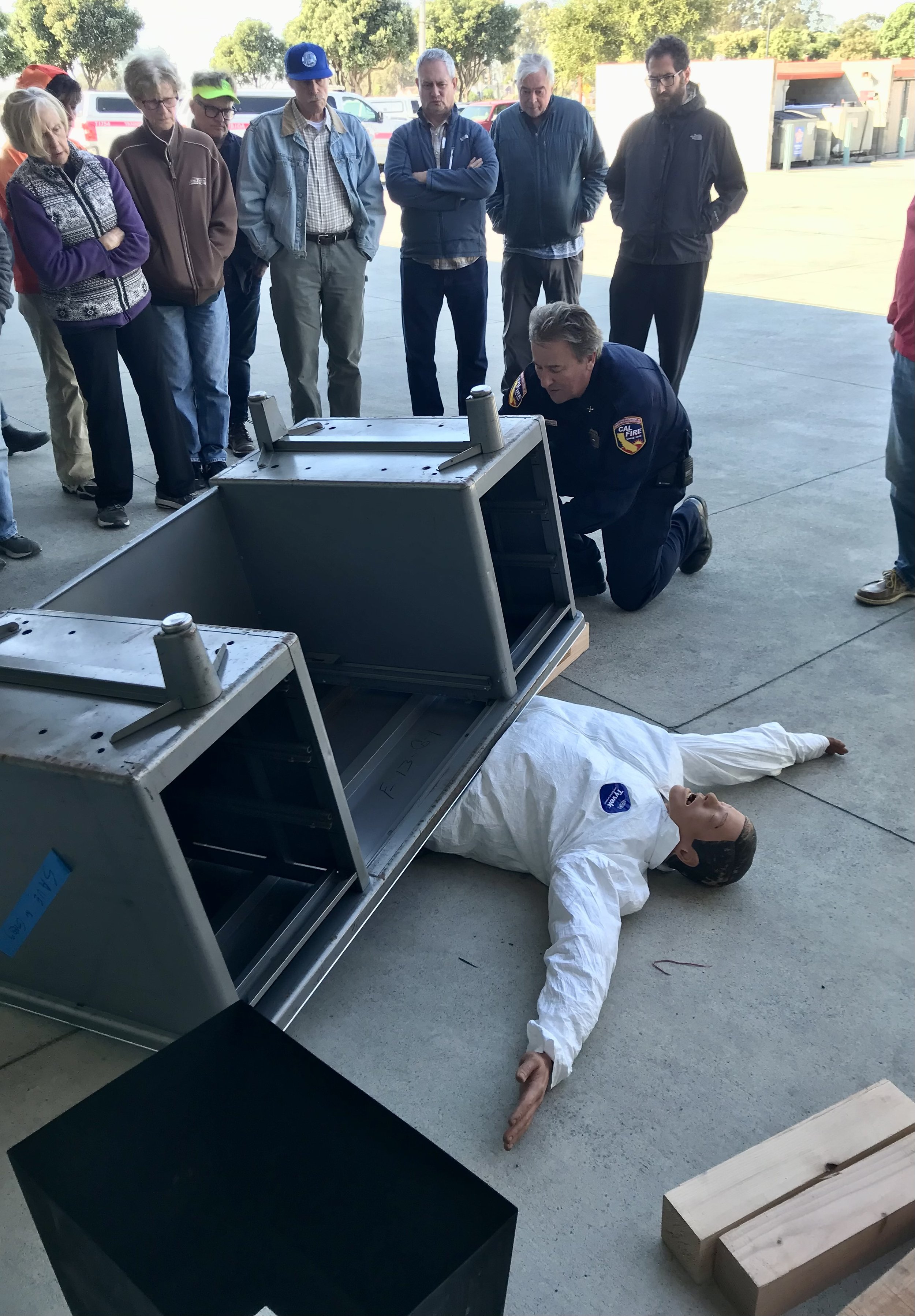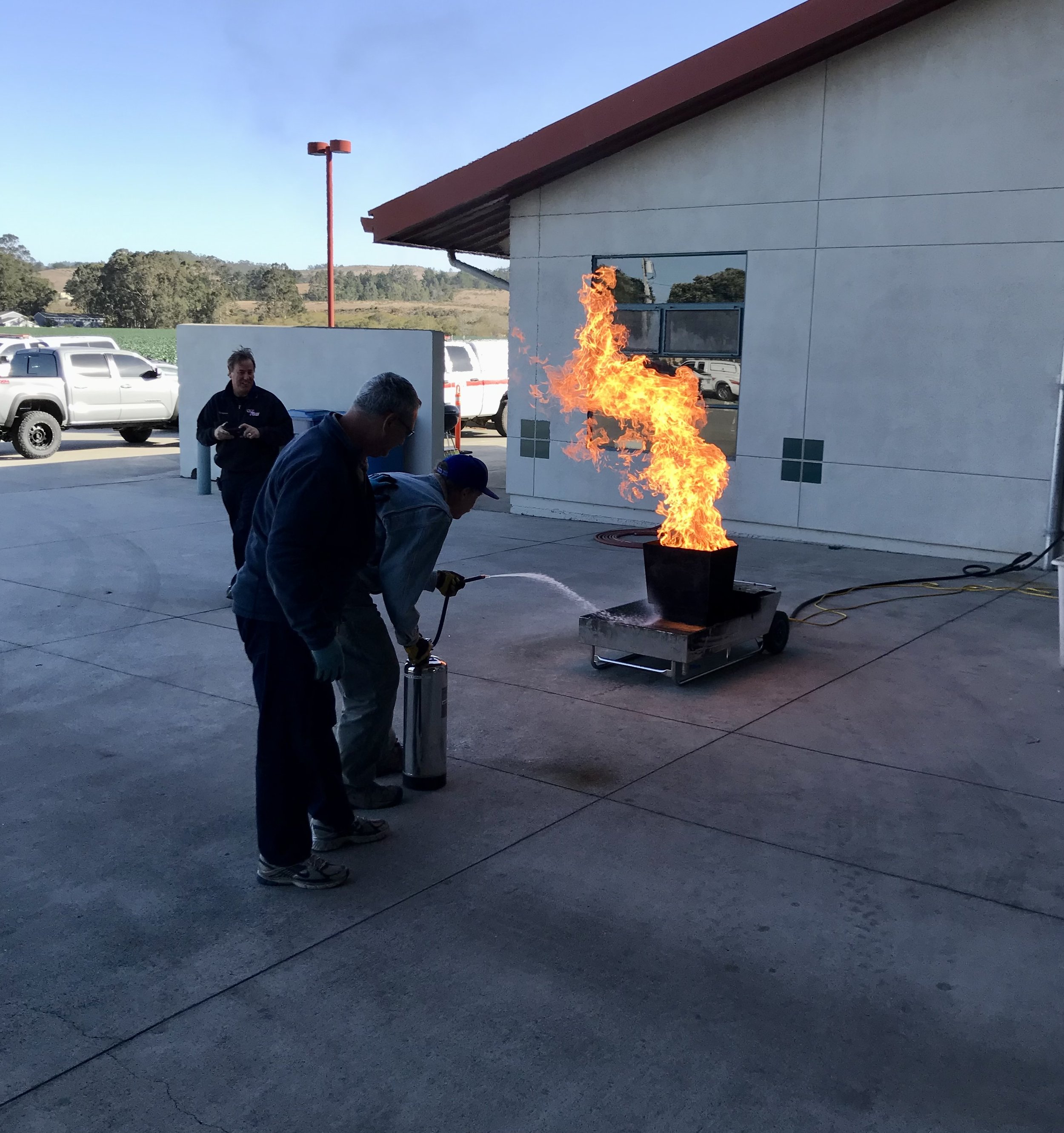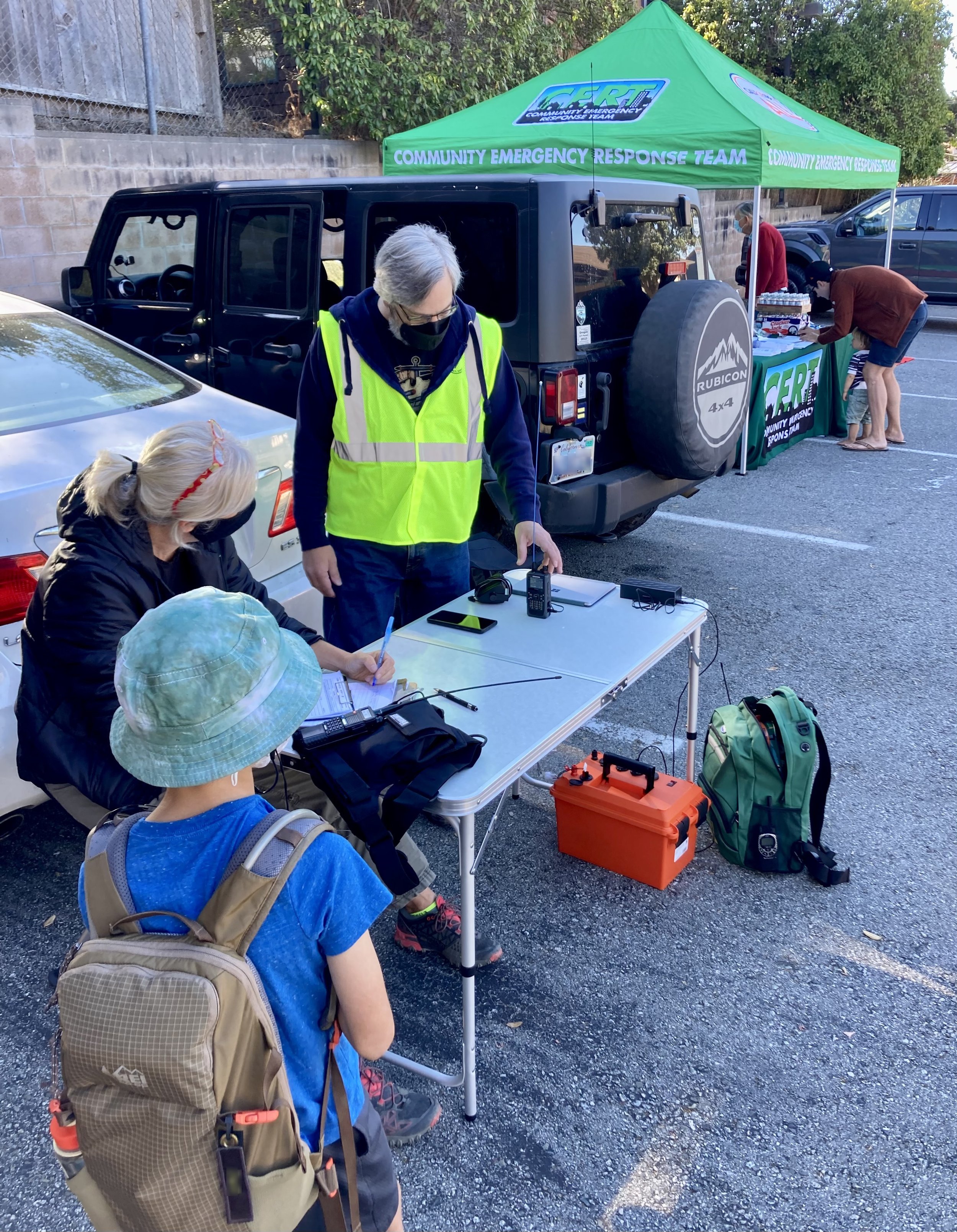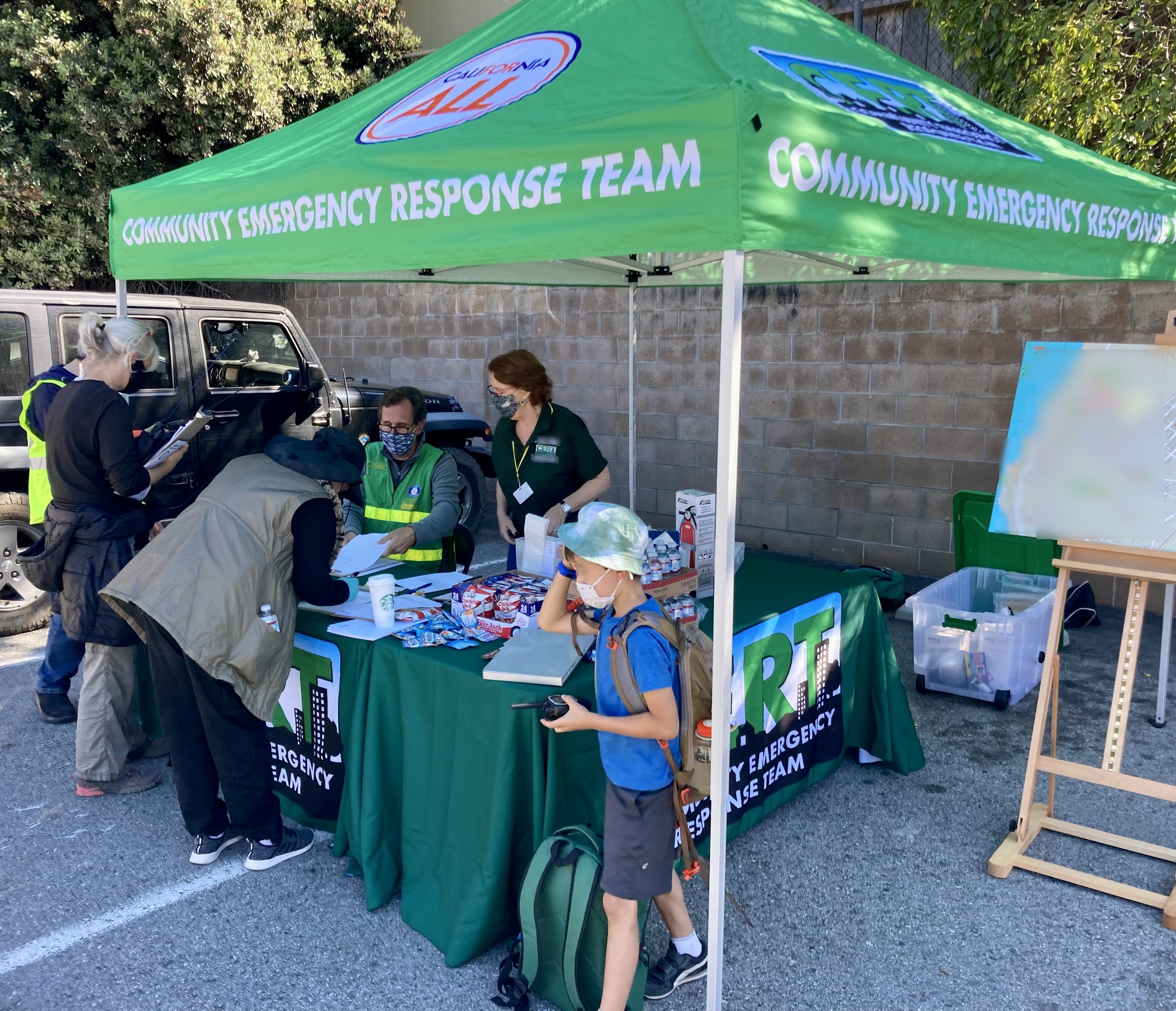Care About Your Neighbors - Join CERT
OK, For starters, this is a United States centric Topic. My apologies for that. I know I have readers in many countries but many of the concepts can be applied to pretty much ANY community, and in reality, the thing I am suggesting has very little to do with FEMA or CERT or whatever, and everything to do with finding ways to help your community.
If you are like me, you wanted to be a fireman, or a police officer (and yes, maybe an astronaut) when you were little. I had these books that my Dad had as a kid by a man named George Zaffo (a super talented artist who studied with Norman Rockwell). Zaffo was an absolute master of realistic paintings, and cutaway drawings and his books were very popular in the 1950’s. There was even a cute story in the New York Times in 2013 about how William Bratton, the Chief of Police in New York was heavily influenced by Zaffo’s book on police. When I read those books, I also wanted to be a helper.
Side bar: Those books are long since out of print, but you can often find them on eBay, as they were very popular in their day. They didn’t dumb anything down. I used those books to teach my kids how an internal combustion engine worked!
The point of this is that like a lot of people, I wanted to help when things were bad. I wanted to be one of the “good guys” who would show up and solve problems and help people. My career took different turns, and I was not fated to be a fireman or a police officer, but it doesn’t stop me from wanting to help. I have always loved being part of a community, as well. I want to know my neighbors. I want to stop and chat with them all, bring in their garbage cans from the curb to help out, bring over cookies, or share fruit from our trees, and check on them in a power outage.
A lot of prepping focuses on all of the bad things that might happen in SHTF (“Stuff” Hits The Fan) or about how to protect your mylar bags of rice from marauding hordes, or whatever. Maybe that stuff will happen. I dunno. But I’ll tell you what also is gonna happen… long before anyone loots anything, a whole bunch of kind folks are going to go out and try to check on their neighbors and offer help.
““When I was a boy and I would see scary things in the news, my mother would say to me, “Look for the helpers. You will always find people who are helping.””
That quote from Mr. Rogers has been used a lot recently, and to be completely fair, there are opinions that Mr. Rogers’ quote is not great for adults. But I love it, because it illustrates my belief that the world is not full of marauding bandits (at least for a while) and that people want to help others. Let’s assume you have read this far and you agree with me. What do you DO about it? Feels a little weird to go door to door asking if anyone wants to join your earthquake club. How do you find some like minded neighbors and put a little structure around working together?
You could set up a neighborhood support group, or organization, or do something even more structured, like what people of the Mormon faith do to be prepared (I am not a Mormon, but I read a really good book called “Lights Out” by Ted Koppel which talked a lot about Mormon preparedness. Great book. The audiobook is awesome because Ted Koppel reads it!). But my strong recommendation (This is US centric, btw) is to join your local CERT.
CERT stands for Community Emergency Response Team and it is a collection of thousands (2700 according to the website) of neighborhood focused chapters which train local people to be able to help assist in disaster relief in a disaster. CERT has its foundations in Los Angeles in the mid-eighties (1985) and was first used in the widespread Whittier Narrows earthquake in 1987. The general idea is that regular citizens can get some basic training to be able to respond to an emergency.
This does NOT mean that you are becoming a law enforcement officer. Or an EMT. It means that you are a regular person who has some small training in things like how to triage people, how to look for hurt people in a building, how to use a fire extinguisher, and how to coordinate with professional emergency responders.
I signed up for CERT, and have taken a few classes, and done some of the online reading. I found it super valuable and encourage you to sign up. My class. took place over a few weekends and we learned things like:
How to use a fire extinguisher
How to triage people in an earthquake type situation
How to coordinate with folks like fire fighters to help them
How to work with local teams like Ham Radio operators (I am also a Ham Radio operator, so more on that in a different post at some point)
How the local emergency response teams are set up (learned a lot about how ambulances work, and how fire departments work)
How to read those signs on buildings to see if there are hazardous chemicals inside
The class itself was good, but the real benefit was the community practice after the fact. Each year California does a thing called the “Great Shakeout” where you pretend there’s an earthquake, and try to simulate what you would do. Our local CERT team set up a command post at the post office, and used radios to send teams to go check on neighbors (we walked up and down streets, and counted anyone who put their trashcan out with a sign on it indicating they were part of the drill). Then we practiced radioing in to the fire station (the local Fire Department was involved), and practiced radio etiquette. We even had some local private plane pilots fly up in the air and practice radioing down to us, telling us a dam had broken, and to help evacuate people, etc. All pretend, of course, but it was a great way to get people involved.
Here are some pictures from the CERT training I attended.
As you can see, we learned how to use a fire extinguisher, practiced triaging injured people pulled from that brick fire testing building (notice the red tarp on the ground… that matches people in the “Red” triage scenario from that card on my backpack below) and how to use lumber to get leverage to safely lift objects off people. Note also that we had coordination and help and instruction from the Fire Department itself, so we learned first hand how to work with them.
As a part of graduating from CERT, you get a hard hat, and a backpack with some stuff in it and a vest. I treated myself to a nicer vest on Etsy, because I had a hard time with my radios on the free one, but you can see some of that here.
I added the headlamp, but this little bag holds a lot of my “go check on neighbors after earthquake” stuff. Radios, note pads, Sharpie Pen, etc. Note also that you get some good, helpful aids in triaging injured people. This little laminated card is clipped to the top of the backpack, and shows how you might triage people in some disaster like a bus crash or something.
Green means you are mostly ok, and are “walking wounded.” And things get worse from there. We practiced with tarps of different colors, and had actors playing parts. That red tarp in the picture earlier maps to the red in the card above.
Now, once I met some of the other people in my neighborhood (I knew some already, and met a lot of new folks as well), we started being more organized. I mentioned the earthquake drill earlier, and here are some pictures from that. You can see the CERT command tent, and see the radios and see my son wearing his “go bag” and practicing with a radio. This is a really great chance to get your kids involved as well. If there ever IS an earthquake, having my kids be a little less scared will be fantastic. Having them be HELPFUL would be even better!
The other thing we do is try to encourage more neighbors to sign up, and then also reach out to try to get everyone to have a GMRS radio. I will post a lot more on radios (that is a big topic) but the idea is that if everyone has a cheap radio and knows what channel to use, we could all check in with each other from house to house or block to block to get news or help in an emergency. We do Tuesday radio checks (7PM, people check in on the radio) each week. In Covid, we actually did even more, because everyone was home all the time.
And it is nice to tell your neighbors that they could get help with a set of radios that isn’t fancy. We recommend and use these Midland Handheld radios. They are a nice mix of good power and easy to use. We have a bunch of these, and they are sturdy enough to let out kids carry them. You can see one in my son’s hand above as we checked in with the command base. You can also see that orange box holds a battery and runs a more high powered radio that we used to talk to the fire chief.
So hopefully you are considering signing up!
You can see basically all of the classroom training materials HERE
You can find a local CERT program HERE (again, US centric)
But I encourage you to give it a try and sign up to take the class and get involved!



